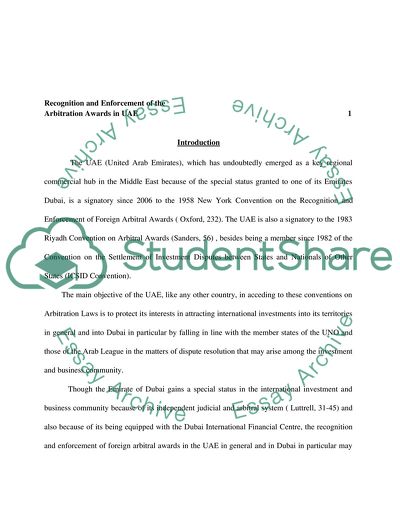Cite this document
(Recognition and Enforcement of the Arbitration Awards in UAE Research Paper, n.d.)
Recognition and Enforcement of the Arbitration Awards in UAE Research Paper. Retrieved from https://studentshare.org/politics/1721980-recognition-and-enforcement-of-the-arbitration-awards-in-uae-and-particularly-in-dubai
Recognition and Enforcement of the Arbitration Awards in UAE Research Paper. Retrieved from https://studentshare.org/politics/1721980-recognition-and-enforcement-of-the-arbitration-awards-in-uae-and-particularly-in-dubai
(Recognition and Enforcement of the Arbitration Awards in UAE Research Paper)
Recognition and Enforcement of the Arbitration Awards in UAE Research Paper. https://studentshare.org/politics/1721980-recognition-and-enforcement-of-the-arbitration-awards-in-uae-and-particularly-in-dubai.
Recognition and Enforcement of the Arbitration Awards in UAE Research Paper. https://studentshare.org/politics/1721980-recognition-and-enforcement-of-the-arbitration-awards-in-uae-and-particularly-in-dubai.
“Recognition and Enforcement of the Arbitration Awards in UAE Research Paper”, n.d. https://studentshare.org/politics/1721980-recognition-and-enforcement-of-the-arbitration-awards-in-uae-and-particularly-in-dubai.


